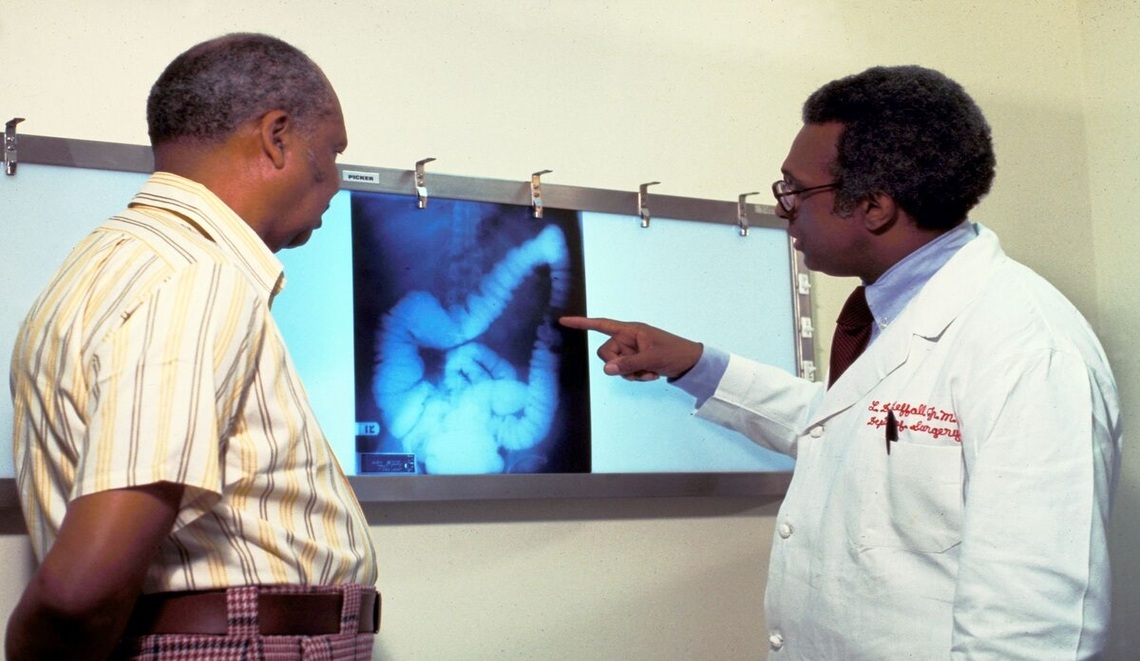

Over 150,000 new cases of colorectal cancer are projected to be diagnosed in the U.S. in 2024, according to the American Cancer Society. With numbers rising, research has never been so important. For those of you seeking colorectal trials, clarity and guidance on eligibility and the overall clinical trials process can help in guiding crucial decisions and pave access to innovative treatments.
Clinical trials for colorectal cancer are very important for finding improved treatment for the disease. These ongoing studies are testing how safe and effective new treatments are — like immune-based therapies, drug combinations or better screening tools — that could result in significant advances in the way we detect and treat colorectal cancer in the coming years.
Clinical trials are well-planned research studies of people. For colorectal cancer, these trials seek to improve prevention, detection, or treatment of the disease. Some trials address early-stage cancer, others help patients with advanced or recurring colorectal cancer.
These trials may include:
Hence, patients help improve the research in future by participating and possibly gain access to promising treatments before they are widely available.
Also Read: Better Life for Patients During Colorectal Cancer Treatment
Whether you are eligible for a clinical trial; depends on various factors. That involves following each study’s specific inclusion and exclusion criteria — basically a checklist to figure out who is and who is not allowed to participate.
Common eligibility factors include:
For example, a trial may seek patients with Stage III colorectal cancer who have not responded to standard chemotherapy. Another would look for newly diagnosed patients to test early treatment approaches.
That’s why speaking with your healthcare provider or a trial coordinator will be beneficial. They can match your unique situation to active trials that best suit your condition.
The process of enrolling in a clinical trial generally goes like this:
This entire process is designed to focus on patient safety and comfort while ensuring valuable research data is collected.
The reasons individuals consider enrolling in colorectal cancer clinical trials can vary but may include:
While there are also potential risks (like side effects or uncertainty about treatment success), you’ll be fully informed before making any decisions.
Houston is home to exceptional cancer research institutes including MD Anderson Cancer Center, Baylor College of Medicine, and more. That means that these organizations conduct many colorectal cancer trials in Houston, giving residents and out-of-state patients the chance to join world-class research.
Due to this abundance of research facilities, Houston continues to be one of the foremost locations to investigate involvement in active trials for colorectal cancer. And whether you or someone in your life has been newly diagnosed or is looking for alternatives after standard treatments, Houston clinical research community can help connect you to options that delivers promising results.
Here are a few ways to locate a clinical trial:
Some trials offer travel assistance, meal stipends, or other forms of support to reduce the burden on participants. Always ask about these details when considering a study.
Before enrolling in a colorectal cancer clinical trial, consider asking:
These questions can help you make a confident and informed decision about your care.
Colorectal cancer clinical trials are a crucial cornerstone for advancing diagnosis and therapy, as well as improving long-term outcome. Whether you’re exploring your first option, or looking for alternatives after standard treatment, there are number of active trials in Houston designed for patients like you.
Hence, being informed about your eligibility and understanding the process can make the experience less difficult and more empowering.
We, at Biopharma Informatic are committed to getting participants connected with the most appropriate trial at the appropriate time. Whether you’re ready to sign up for a study or want to know more about what participating would involve, we will help you take each step of the way.
Contact Biopharma Informatic today to explore available colorectal cancer trials in Houston and take a step toward advanced, personalized care.